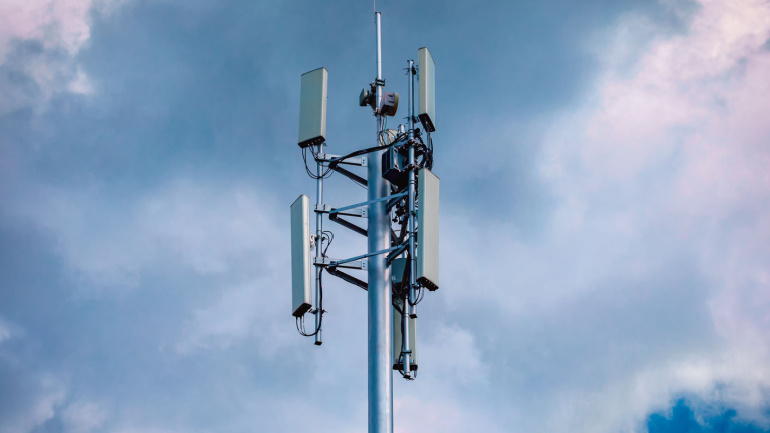Ciena’s novel approach towards rising above intense market competition involves enhancing its residential fiber-to-the-home (FTTH) solutions. Their business strategy comprises strategic mergers and acquisitions, integration of unique features post acquisitions, and providing comprehensive end-to-end resolutions. Ciena’s ‘one box’ solution is highlighted for its potency on typically challenging scenarios, like rural areas, by offering reduced costs and increased flexibility. Changes are also seen from market players like VEON and Telefonica, amidst this evolving industry.
The Ultra-Broadband Forum 2023 has seen industry leaders propose the revolutionary 10 Gbps City Initiative, aiming to construct digitally transformative and ultra-connected cities. Beyond being a mere term, the 10 Gbps City represents a significant shift in infrastructural development. This ambitious project hints at the power of telecommunications transformation, driving the digital economy to unexplored territories. Governments hold the key role in accelerating these changes, as they can bridge digital divides and facilitate universal digital services.
5G – a transformative force reshaping engagement and innovation parameters, and serving as an unbeatable tool in the delivery of public services. A recent discussion convened by industry experts highlighted the profound ways 5G is set to transform public service delivery. The prime objective? To nurture an environment of growth through collaboration, aligning 5G deployments with societal needs and creating impactful outcomes. Public authorities are encouraged to adapt, to harness the power of 5G and transform public service delivery. The journey of 5G is only just beginning.
Five nations have formed a global alliance, ambitiously named the Global Coalition on Telecommunications (GCOT), a promising step towards international cooperation in the telecommunication arena. Set to modernize Open RAN, enhance 6G, and resolve security issues linked to China, this consolidates the efforts of five major entities across UK, Australia, Canada, Japan, and the U.S. The coalition aims to better integrate policy matters and drive growth within the industry. However, uncertainty looms over the form this alliance will take in future, prompting intense interest within the telecom sector.
Leading the way in private network establishment, the U.S. capitalizes on unique advantages from Citizens Broadband Radio Service (CBRS) and its innovative three-tiered spectrum approach. This nonpareil blueprint fosters efficient allocation of limited spectrum resources, empowering the expansion of private 5G networks. Riding this wave, companies like Quanta Cloud Technology and Intel synergize to create future-focused solutions, navigating challenges and setting the stage for 5G’s transformative potential.
Denmark’s leading telecommunication firm, TDC, is performing an internal review after fears of overleverage and slipping cash flow puts its credit rating at risk. The investigation is in early stages, with outcomes and possible transactions still unclear. However, TDC’s majority stakeholder, Australian firm Macquarie, will be watching closely. Despite a strategic split into separate business units last year aimed to accelerate growth, both have shown mixed financial results. Amidst increasing competition, TDC’s future is set against the backdrop of evolving telecommunications business models and industry debates.
Generative AI’s capacity to curate fresh content is piquing interest within the telecommunications domain with predictions of significant growth. A recent Altman Solon survey revealed that nearly half of the experts in this field are gearing towards adopting this technology within the forthcoming two years. Telecommunications companies are seen to utilize AI power initially to refine customer experiences. Alterations of these AI models to align with specific objectives and eventually, creating new industry-focused models are the subsequent phases. However, data protection concerns circulate around its adoption. Thus, an intricate balance must be reached in refining AI applications and ensuring data safety.
Strengthened by two pivotal elements, technical prowess and spectrum liberalization advancements, 5G cellular technology emerges as a game-changer. Its reliable performance makes it a preferred choice, enriching private 5G networks globally; a feat powered by QCT and its OmniPOD solution. In the telecommunications horizon stands ‘Network X’, a groundbreaking initiative merging wireline and cloud under the 5G umbrella. Slated for October 2023 in Paris, it aims to propel progress in product innovation and network modernization. Indeed, the 5G revolution is unmissable for businesses and individuals alike, with platforms like Network X offering invaluable insights.
The emergence of 5G has ushered in a profound transformation in the telecom industry’s approach to charging, surpassing former phased shifts in monetization. It’s crucial for CSPs to establish a flexible charging system in tune with the fast-paced evolution of services, extending from 3G, 4G to fixed-line and 5G. Essential features of an effective charging mechanism certainly include flexibility, but also scalability and adaptability, to incorporate a range of services and adapt to continuous changes in service offerings. Network X, a standout telecom event, dedicates itself to exploring these issues and equipping attendees with strategic knowledge.
The telecommunications realm of Sweden and Denmark is on the brink of a substantial transformation, with Stonepeak’s impending acquisition of a 49% stake in Cellnex Nordics. Despite alterations in ownership, operational management remains with Cellnex. However, the agreement awaits regulatory approval, with full expectancy of completion by Q1 2024. The funding injection is anticipated to bolster Cellnex’s debt reduction strategy, aiming for a coveted S&P investment grade credit rating. Both parties share a positive outlook, viewing this step as critical in Cellnex’s broader shift towards consolidation.













